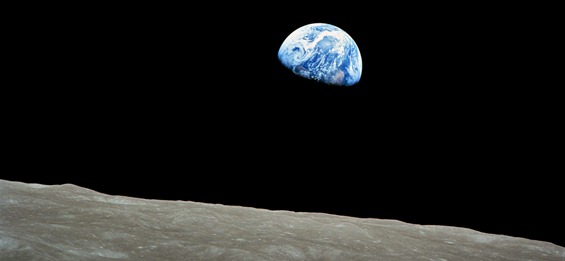Out of all the planets in our solar system, Earth is the only one we know of with life. Artifacts on Mars hint towards a planet that might have been hospitable in the past. There are also theories about a couple of Jupiter’s moons having conditions suitable for liquid water – a crucial component to life, in our experience.
But, as of writing this, Earth stands alone as the only place where life not only exists, but thrives.
Appropriately, the planet we call home is practically a living thing all by itself. The core of the Earth is hot and molten, the force of which pushes up to the surface in the form of volcanoes and fissures. Along those fissures, lava is forced up to form a new crust on the surface. At the same time – since there is only so much surface area on the planet – other land is pushed back down to the core. All of this abrasion of rock against rock creates earthquakes – deep rumbles of destruction that change and shape the surface of the planet.
Earth also breathes. Plants take in carbon dioxide, combine it with the energy of sunlight, and release oxygen – one of those essential, complex elements, first born from stars so many millions of years ago. Animals then use this oxygen for their own survival, converting it back into carbon dioxide.
Energy is constantly being delivered to the Earth from the Sun. The universe likes equilibrium, and so when one part of the planet has more energy – more heat – than another part, it tries to correct itself. All these gaseous elements start moving, forming complex weather systems in an effort to balance the irregular energy hitting the planet.
It is no surprise that the Earth is often referred to as a Mother. It is as complex and sophisticated as any of the creatures that reside here.
As much as humanity likes to romanticize the Earth as a Mother, we certainly don’t treat it like one. The biggest debate surrounding our planet is undoubtedly that of climate change.
The problem with this debate is that there is no single piece of data you can point to that convinces everyone that something is happening. Worse still, even if you do manage to convince someone that the Earth’s climate is changing, it is difficult to prove that humanity is the cause.
There are those who hold the opinion that because the Earth is so large and complex, there is nothing humans could do to harm it. This argument is easily challenged when you consider the number of species that humans have either endangered or made extinct due to their activities. There is also no denying that we are running out of some resources, such as fresh water and fossil fuels.
If we can sap Earth’s resources dry, who’s to say we can’t also pollute or change the composition of the atmosphere enough to cause a change in climate? We can point to timelines that show the rising quantity of CO2, and rising temperature, over the last several hundred years. We can also show how these changes correlate to humanity’s gradual uptick in fossil fuel usage. But it could be argued that this is merely correlation and not causation.
So here’s the thing. We have quite a bit of evidence showing how our carelessness has negatively affected the Earth. Some of the things that we observe are more ambiguous in nature – like the melting ice caps. But it would be ignorant of us to assume that nothing we are doing is having an effect. Perhaps humanity’s impact is only part of an overall picture. But we are releasing tons of pollution into the environment, and in many cases this is something the Earth is not equipped to naturally filter out.
So, hm. We should probably do something to reverse whatever damage we’ve done, right?
While that “large and complex†argument from earlier doesn’t imply the Earth is indestructible, it is complex. There have been a lot of theories for how to force the Earth’s climate into something more normal should things grow worse — this is a bad idea. We can’t possibly anticipate the side effects of any correctional measures we attempt.
Frankly, all we can do at this point is better our behavior, ride through any climate change, and hope for the best. In fact, even if climate change doesn’t get any worse, we need to change our ways and better protect the Earth so as to reduce the type of damage we know is linked to humans.
It’s good that people are starting to realize we need to take more care of our home. There is not only an entire “green†movement, but it has reached the point of being overdone. In other words, a lot of the things that claim to be “green†aren’t as good as they appear. For each positive aspect meant to help the Earth, there is something else that’s not so good. Still, it’s a start.
My fear is that to really co-exist with the Earth, we need to change our behavior dramatically. All of these things the privileged developed nations enjoy – running water, constant electricity, plentiful food, gadgets – drain Earth’s resources, and is barely sustainable for the developed nations, let alone the rest of the Earth. For everything to coexist happily, I fear we need to scale back what a lot of humans take for granted.
I fear most humans are unwilling to do that.
Part 3: Life >>

[…] Part 2: Earth >> | Tags: discussion, rant « 0. Introduction 2. Earth » […]